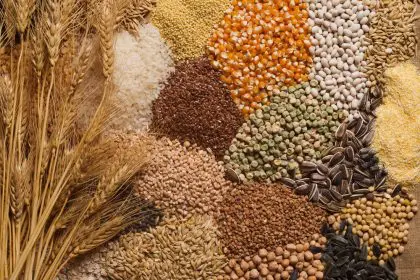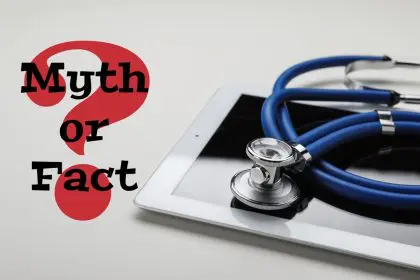In today’s health-conscious world, the word “gluten” sparks immediate reactions. Some people avoid it like a toxin, while others wonder if the panic is overblown. Is gluten truly as harmful as people say, or is the fear fueled by myths, celebrity diets and viral health trends?
This article examines what gluten really is, who should avoid it and whether the rest of us should reconsider how we think about it.
Understanding gluten and its reputation
Gluten is a naturally occurring protein found in wheat, barley and rye. It gives bread its chewy texture and helps dough rise. For centuries, humans have consumed gluten without issue — so why has it become the target of so much negativity today?
In recent years, gluten has been linked to various health concerns, ranging from digestive discomfort to serious autoimmune conditions. Social media, celebrity endorsements and health influencers have amplified messages suggesting that gluten-free equals healthier. But the truth is more complex.
Who is actually harmed by gluten
Gluten is harmful to certain people, but that doesn’t automatically make it harmful to everyone.
People with celiac disease — an autoimmune disorder — experience severe reactions when consuming gluten. Even tiny amounts can trigger immune responses that damage the lining of the small intestine, leading to malabsorption of nutrients, weight loss, fatigue, anemia and other health complications. For these individuals, avoiding gluten is not optional; it is a medical necessity.
There’s also non-celiac gluten sensitivity, a condition where individuals experience symptoms like bloating, headaches or brain fog after eating gluten. While the immune system is not attacking the body in this case, the symptoms can still be distressing.
However, studies show that the vast majority of the population can tolerate gluten without issue. In fact, unnecessarily cutting it out of your diet can sometimes deprive you of important nutrients found in whole grains.
The role of misinformation and marketing
The rise of gluten-free products and marketing campaigns has contributed to the idea that gluten is inherently bad. Walk into any grocery store, and you’ll see “gluten-free” labeled on products that never contained gluten in the first place — like water or potato chips — simply to catch the eye of health-conscious shoppers.
Many celebrities and public figures have endorsed gluten-free diets, claiming weight loss, improved energy or clearer skin. But for people without celiac disease or gluten sensitivity, there’s little scientific evidence that removing gluten offers these benefits. In fact, some gluten-free alternatives can be more processed, higher in sugar or lower in fiber than their gluten-containing counterparts.
Who truly needs to avoid gluten
For those diagnosed with celiac disease, avoiding gluten is critical for health and survival. Doctors recommend a strict gluten-free diet, along with regular follow-ups to monitor nutritional status and gut health.
People with non-celiac gluten sensitivity can benefit from reducing or avoiding gluten, but they should do so under medical guidance. Self-diagnosing can be risky because the symptoms often overlap with other conditions like irritable bowel syndrome or wheat allergies.
For everyone else, cutting out gluten without a clear reason may lead to unnecessary restrictions and even nutritional deficiencies. Whole grains that contain gluten — such as wheat, barley and rye — are rich sources of fiber, iron, B vitamins and antioxidants. Eliminating them without proper substitutes can do more harm than good.
The emotional impact of food fears
Food has become more than just fuel — it’s often tangled up in identity, morality and fear. When headlines warn about the dangers of gluten, many people feel anxious or guilty about what they eat, even if they have no medical reason to avoid it.
Sitting down for a family meal and feeling panic over a piece of bread or pasta, even though your body has no known intolerance, can take a toll on mental health and lead to an unhealthy relationship with food.
Parents may also feel pressured to put their children on gluten-free diets, hoping to ward off imagined dangers or to align with popular wellness trends. But unless medically necessary, imposing dietary restrictions can limit a child’s exposure to diverse, nutritious foods.
Research on gluten and health
Studies show that celiac disease affects about 1% of the population. Non-celiac gluten sensitivity is harder to measure, as it lacks a clear diagnostic test, but it is estimated to affect another small percentage. That leaves the overwhelming majority of people unaffected by gluten’s supposed harms.
Whole grains, including those containing gluten, have been shown to reduce the risk of heart disease, type 2 diabetes and certain cancers. Removing these grains without medical cause can strip your diet of protective nutrients, potentially increasing long-term health risks.
A balanced approach to gluten
Instead of fearing gluten, focus on balance and moderation. If you suspect you have an issue with gluten, consult a doctor before making dietary changes. They can help determine whether testing is needed and whether gluten is truly the culprit behind your symptoms.
For those without gluten-related conditions, aim to enjoy a diverse diet that includes whole grains, fruits, vegetables, lean proteins and healthy fats. Watch out for over-processed “gluten-free” snacks, which can sometimes carry health risks of their own, including added sugars and unhealthy fats.
The verdict on gluten
After examining the evidence, it becomes clear that gluten is only harmful to specific groups of people. For the majority, it’s a harmless — and even beneficial — part of a balanced diet.
The fear surrounding gluten often stems from misunderstanding, exaggerated claims and the influence of diet trends rather than solid science. While it’s wise to be mindful of what you eat, it’s equally important not to fall into unnecessary food fears that can negatively affect your physical and mental health.
Health is not about cutting out everything you hear criticized online. It’s about understanding your body’s needs, making informed choices and maintaining a relationship with food that nourishes both body and mind.















